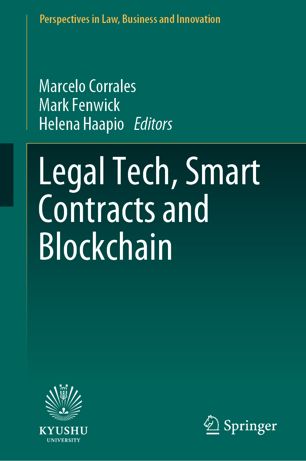

Most ebook files are in PDF format, so you can easily read them using various software such as Foxit Reader or directly on the Google Chrome browser.
Some ebook files are released by publishers in other formats such as .awz, .mobi, .epub, .fb2, etc. You may need to install specific software to read these formats on mobile/PC, such as Calibre.
Please read the tutorial at this link: https://ebookbell.com/faq
We offer FREE conversion to the popular formats you request; however, this may take some time. Therefore, right after payment, please email us, and we will try to provide the service as quickly as possible.
For some exceptional file formats or broken links (if any), please refrain from opening any disputes. Instead, email us first, and we will try to assist within a maximum of 6 hours.
EbookBell Team

4.3
38 reviewsThere is a broad consensus amongst law firms and in-house legal departments that next generation “Legal Tech” – particularly in the form of Blockchain-based technologies and Smart Contracts – will have a profound impact on the future operations of all legal service providers. Legal Tech startups are already revolutionizing the legal industry by increasing the speed and efficiency of traditional legal services or replacing them altogether with new technologies.
This on-going process of disruption within the legal profession offers significant opportunities for all business. However, it also poses a number of challenges for practitioners, trade associations, technology vendors, and regulators who often struggle to keep up with the technologies, resulting in a widening regulatory “gap.” Many uncertainties remain regarding the scope, direction, and effects of these new technologies and their integration with existing practices and legacy systems. Adding to the challenges is the growing need for easy-to-use contracting solutions, on the one hand, and for protecting the users of such solutions, on the other. To respond to the challenges and to provide better legal communications, systems, and services Legal Tech scholars and practitioners have found allies in the emerging field of Legal Design.
This collection brings together leading scholars and practitioners working on these issues from diverse jurisdictions. The aim is to introduce Blockchain and Smart Contract technologies, and to examine their on-going impact on the legal profession, business and regulators.